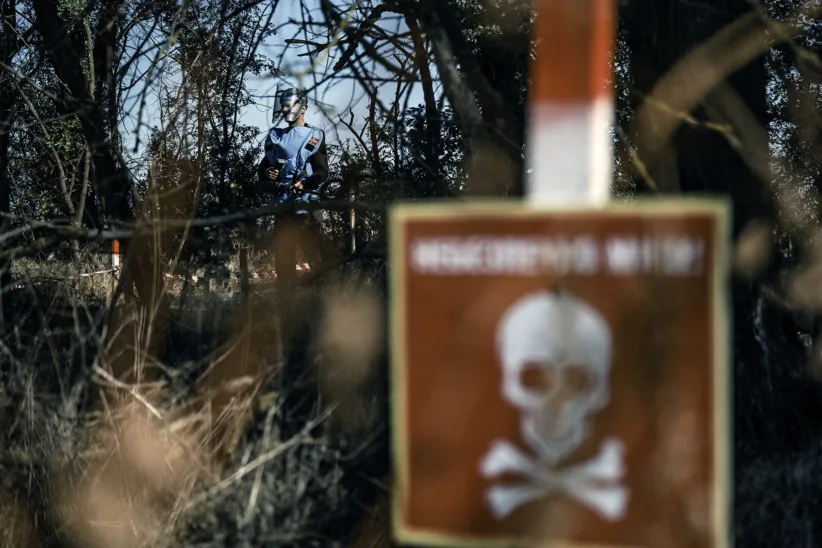Norwegian People’s Aid: Ukraine remains bound by its obligations under the Anti-personnel Mine Ban Convention
Ukraine’s declaration of a “suspension” of the operation of the Anti-Personnel Mine Ban Convention (APMBC) lacks legal merit and does not relieve it of its obligations as a State Party to the Convention. Ukraine remains bound by the APMBC, and as such, any possible use of anti-personnel mines (or other acts prohibited under the Convention) would constitute a clear violation of its international obligations.

On 18 July 2025, the Government of Ukraine submitted a communication to the Secretary-General of the United Nations, as the depositary of the APMBC, declaring that it had “decided as of July 17, 2025 to suspend the operation of the Convention”. Ukraine has claimed that it is entitled to suspend the implementation of its obligations under the APMBC in accordance with the provisions of the Vienna Convention on the Law of Treaties of 1969 (VCLT). In particular, Ukraine justifies the suspension by invoking “a fundamental change of circumstances” under Article 62 of the VCLT.
However, neither the provisions of the APMBC nor Article 62 of the VCLT provide any valid legal basis for Ukraine to unilaterally suspend the implementation of its obligations under the Convention.
Article 1(1) of the APMBC imposes an unequivocal obligation by each State Party “never under any circumstances” to use, develop, produce, acquire, stockpile, retain or transfer anti-personnel mines. This is an absolute prohibition which applies at all times—both in peacetime and during armed conflict—and was deliberately drafted and adopted by the negotiating States without exceptions.
In addition, Article 20(3) of the APMBC reflects a clear intent to limit States Parties’ ability to absolve themselves from their obligations under the Convention during armed conflict by stipulating that if “the withdrawing State Party is engaged in an armed conflict”, its withdrawal “shall not take effect before the end of the armed conflict”. Finally, Article 19 of the APMBC expressly prohibits any reservations to the Convention’s provisions.
Ukraine’s justification by Article 62 of the VCLT and claim of “fundamental change of circumstances” likewise lacks legal merit. Article 62(1) states that the fundamental change of circumstances “which has occurred with regard to those existing at the time of the conclusion of a treaty” must not have been “foreseen by the parties” when they adopted it. However, the existence of an armed conflict has indeed been foreseen by the negotiating States – as referred to in Article 20(3), the absolute prohibition under Article 1(1) and the Convention’s preamble.
Consequently, given that Ukraine’s claimed suspension is not legally valid, and its potential withdrawal would not take effect so long as Ukraine is engaged in the armed conflict with Russia, it remains a State Party to the APMBC and is therefore bound by all its obligations.
NPA calls on all States Parties to uphold and support the international rule of law and firmly reject any attempts to undermine the Convention. The States Parties should reaffirm the Convention’s unequivocal binding nature, in both peacetime and situations of armed conflict. This is not the time to weaken international norms and the rules-based world order we all rely on. It is time to protect and reinforce them.
Anti-personnel mines represent a weapon of the past and have no place in modern warfare.
NPA strongly condemns the illegal Russian invasion and stands in full solidarity with the people of Ukraine. Ukraine has become one of the world’s most mine contaminated countries - it will take decades to clear its land. Anti-personnel mines are claiming lives and limbs of Ukrainian civilians, including children. The answer is not to use more of these indiscriminate, horrific weapons.

